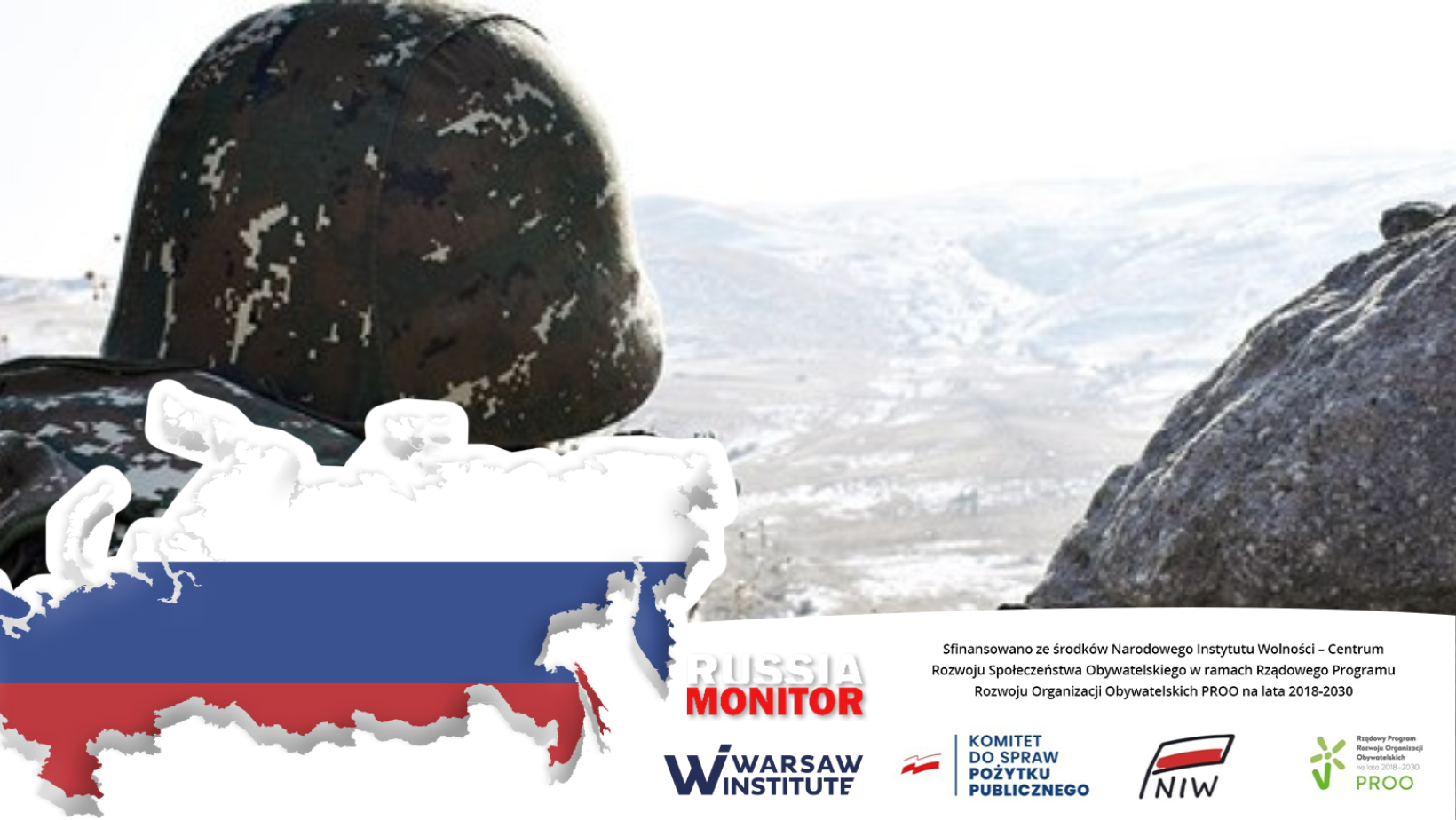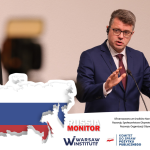
Russia Monitor is a review of the most important events related to Russian internal and external security, as well as its foreign policies.
Date: 25 January 2023 Author: Grzegorz Kuczyński
Russia Remains Idle In Nagorno-Karabakh Crisis
Since December, Azerbaijan has blocked only land connection between Armenia and the ethnic Armenian Nagorno-Karabakh region in Azerbaijan. No transport link by air has been established for three decades. Russian “peacekeeping” do nothing about Azerbaijani militants sent by the government in Baku to prevent traffic on the only road linking the province to Armenia. As Moscow remains idle, Armenia no longer believes in Moscow’s allied commitments while Western states are eager to take advantage of that.

The mountain road linking Nagorno-Karabakh to Armenia was blocked on December 12, 2022. Now, officials say the Russian peacekeeping convoys and Red Cross relief vehicles are the only ones that are able to pass. But it is nowhere near enough to replace all goods that used to arrive daily from Armenia to the enclave cut off from the rest of the world. The humanitarian situation in the enclave grows dire. Since the early 1990s, the breakaway region has been inside Azerbaijan’s internationally recognized borders but held by its ethnic Armenian majority. Some 100,000 people living there under effective blockade were left with supplies of food, medicines, and other essentials running low. Residents are often deprived of electricity, gas, and Internet as infrastructure links to Armenia run through Azerbaijan-controlled areas. Officials in Yerevan have grown increasingly angry at Russia for not doing more to end the blockade, especially since Russian peacekeepers are deployed in the corridor. Russia told Azerbaijan on January 17 that a key road leading into the disputed region of Nagorno-Karabakh must be quickly cleared of protesters. Baku remained unmoved and Moscow has no intention of making any further steps. The issue is becoming a major irritant in Armenia. Yerevan has refused to host military drills by the Collective Security Treaty Organisation (CSTO) while protesters, gathered outside the base in the northern town of Gyumri, were demanding that Russian peacekeepers unblock the Lachin corridor. Consequently, Western states take the lead as Armenia––so far allied with Moscow––has been setting eyes on Western assistance. It was the European Union that emerged as a major player in Armenia-Azerbaijan negotiations to bring lasting peace. Last year, Nancy Pelosi, the speaker of the U.S. House of Representatives, arrived in the Armenian capital, while a few days ago U.S. Secretary of State Antony Blinken spoke with Armenian Prime Minister Nikol Pashinyan. What is worrisome for Moscow is that Armenia is seeing a thaw in its ties with Turkey. Since the early 1990s, the borders to the west (Turkey) and east (Azerbaijan) have been closed since the First Karabakh War. Isolated, Armenia was doomed to an alliance with Russia that is now losing ground in the Caucasus, no longer being a major player in the region.
Support Us
If content prepared by Warsaw Institute team is useful for you, please support our actions. Donations from private persons are necessary for the continuation of our mission.
All texts published by the Warsaw Institute Foundation may be disseminated on the condition that their origin is credited. Images may not be used without permission.
















